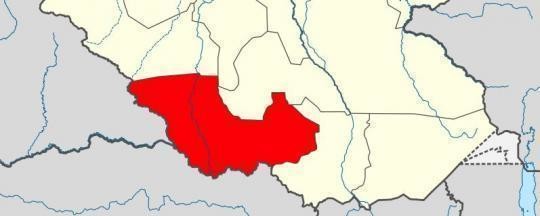The South Sudan Union of Journalists (UJOSS) has condemned the recent burning of journalists’ homes and the intimidation of media professionals in Western Equatoria, particularly in Yambio.
Johnson Juma Batal, the Safety and Protection Officer at UJOSS in Juba, confirmed that the Union had received reports about the attacks. He stated that elements within the National Security Service (NSS) were targeting individuals amid ongoing tensions in Western Equatoria.
UJOSS expressed outrage, emphasizing that such attacks undermine press freedom and jeopardize the safety of media personnel.
“We condemn, in the strongest terms, the burning of journalists’ houses and the intimidation of our colleagues in Yambio,” said Batal.
“Targeting journalists in South Sudan is unacceptable and must be addressed,” he added.
The Union called for an immediate investigation into the incidents, urging authorities in Western Equatoria to hold those responsible accountable. “We demand that the individuals behind these attacks face the consequences of their actions,” Batal stated.
Emmanuel Mandela, UJOSS Secretary in Yambio, also condemned the recent wave of violence against journalists. “Since the removal of Governor Alfred Futuyo on February 10, our members have been targeted. These actions are a clear violation of press freedom and human rights,” Mandela said.
The Union highlighted the cases of four journalists who have faced serious threats, including the burning of their homes:
- The house of former Anisa FM presenter Francis John Abui was burned down, and his whereabouts remain unknown.
- The home of Radio Anisa journalist Alex Yaba was set on fire on February 22, and he is currently in hiding.
- Jackson Sukoyo, a journalist at Yambio FM, was approached by individuals in NSS uniforms, ordered to sit down, and had his phone seized. His phone has not been returned, and his safety remains at risk.
“The unlawful destruction of journalists’ homes and the confiscation of their belongings are serious violations of press freedom and human rights,” Mandela said.
In an interview with Radio Tamazuj, Journalist Alex Yaba described the terrifying moment when he learned his home was on fire.
“I received a call from my sister on the night of February 23, informing me that our house was burning,” Yaba said.
“We still do not know who was responsible for setting the fire,” he added.
Yaba also recounted a disturbing encounter on February 14. “Four men, armed with guns and knives, came to our home while we were away. They threatened our younger siblings and warned them not to tell anyone about the incident.”
Jackson Sukoyo also shared a chilling account of his encounter with soldiers.
“Two weeks ago, while returning home after watching a football match, I was approached by soldiers who ordered me to sit down. They seized my phone and threatened me,” he explained.
“The experience was terrifying, and I am still worried for my safety.”
UJOSS stressed the importance of safeguarding press freedom and called on the government to guarantee the safety and freedom of journalists as they fulfill their role in informing the public and upholding democratic values.
Government officials in Western Equatoria state could not immediately be reached for comment.
Last year, South Sudan ranked 136th out of 180 countries in the World Press Freedom Index, published by Reporters Without Borders (RSF).




